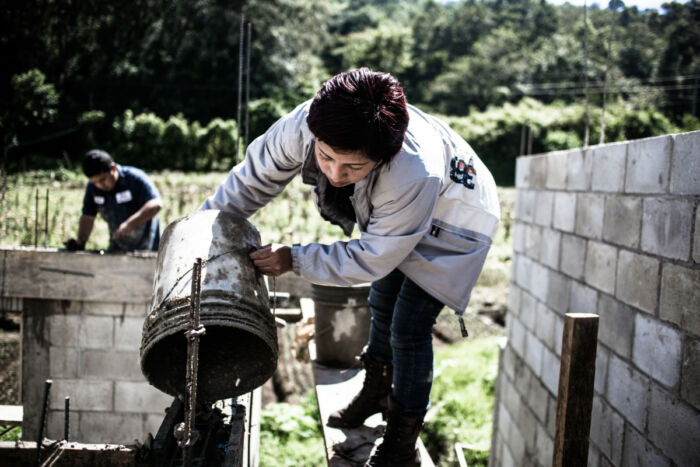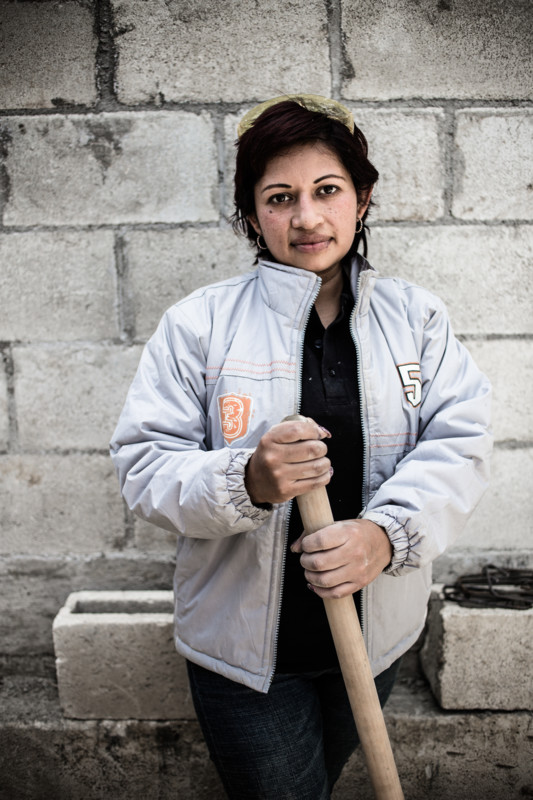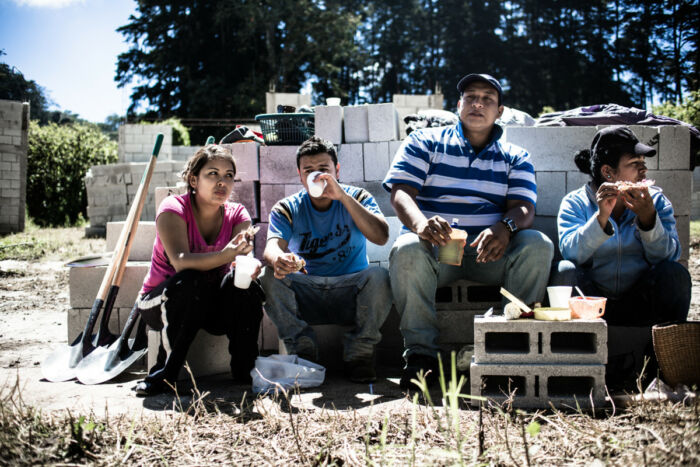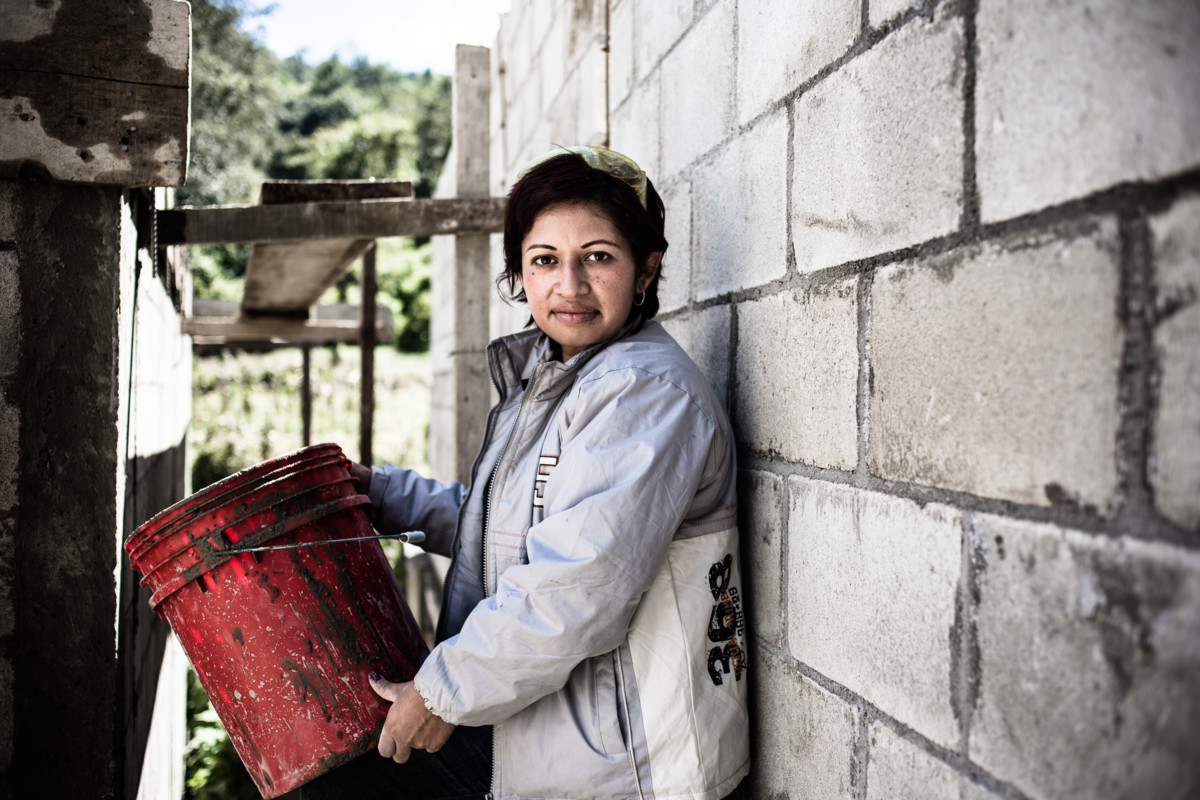Silvia Martínez remembers that ‘five ministers have come to visit us, and even gone to Uruguay to see the model cooperatives. They admire the process, give nice speeches, and promise funding. And just as we have convinced them, they are replaced.’ The cooperatives have therefore needed to fend for themselves. Since 2010, the two cooperatives have managed to finance and build 15 and 14 housing units, with room for more if they can secure funding.

Silvia is one of the original members of the cooperative Fe y Esperanza, located in the cold forest area close to Guatemala City. As funding kept being delayed, Silvia, her sister and their families went to live on and protect the land acquired for the initial 150 families until construction could start and they could prove the credibility of housing for low-income families.
A way for poor people to access housing
“Minimum wage is 2,500 quetzales (US$ 322). But to buy a house and access loans you need an income of 14,000 quetzales to pay 7,000/month. We proved that, with our work only, poor people can access good housing. Monthly costs are now 900–1,100 quetzales, whereas a monthly rent is at least 1,800 quetzales around here” says Silvia.
Silvia used to live in a so-called ‘palomar’ – a housing solution for multiple families. Five to ten families live in a room each, sharing a kitchen and bathroom. There are colonies in Guatemala with many palomares, and in these places, Covid-19 spread very fast.

“Sometimes, landlords are scrupulous and send poor families to squat on lands with the promise of a piece of land, but in the end they are chased away and can come back to rent a room in a palomar when it is constructed’ she explains. These are unsafe places where education is low, delinquency high and opportunities few”, Silvia says.
“They say children are always happy, but it is not true – I could see their sadness. When we finished the cooperative houses, with rooms for everyone, it changed their outlook. They are happy, they have room to play, to study. They are the ones with the best grades and they know the importance of education.”
One of Silvia’s sons is studying graphic design and the other, social sciences. ‘This is what motivates us, and hopefully, the government will see this and start supporting cooperatives.’
Recovered from Covid-19 with herbal remedies
When three families in the cooperative were infected by Covid-19, the other families collected food and supplies, went to make their payments and phone recharges to enable them to stay isolated but communicated. They also supported them with herbal remedies: ‘In our community gardens we have herbs for everything: lemon and eucalyptus tea, mint, rosemary, oranges. This is how our ancestors cured, with herbs and temazcal (sauna). The infection was contained to the three houses, and all neighbours recovered.

With lockdowns and other restrictions, many members lost their income. The women in the cooperatives supported each other with food: ‘When you need help, anything goes – rice or beans, some tortillas, we help anyway we can’. Children were home from school, sharing internet and computers to study online until more families could get wifi, which is expensive. ‘We have a small football court where the kids take turns to play. We organise via WhatsApp. We see how the kids arrange the chairs and tables under a tree to do their homework.’
“We hear in the news about people being evicted for not being able to pay their mortgage or their rent. They live on the street with only a tarp for roof. Out of 1,000 landlords, maybe 50 or 100 would accept to lower the rent during these times as recommended by the government. The rest just evict the families. If we hadn´t had the collective ownership we would probably already be on the street, evicted by the bank – but here, nobody will take our homes.”
